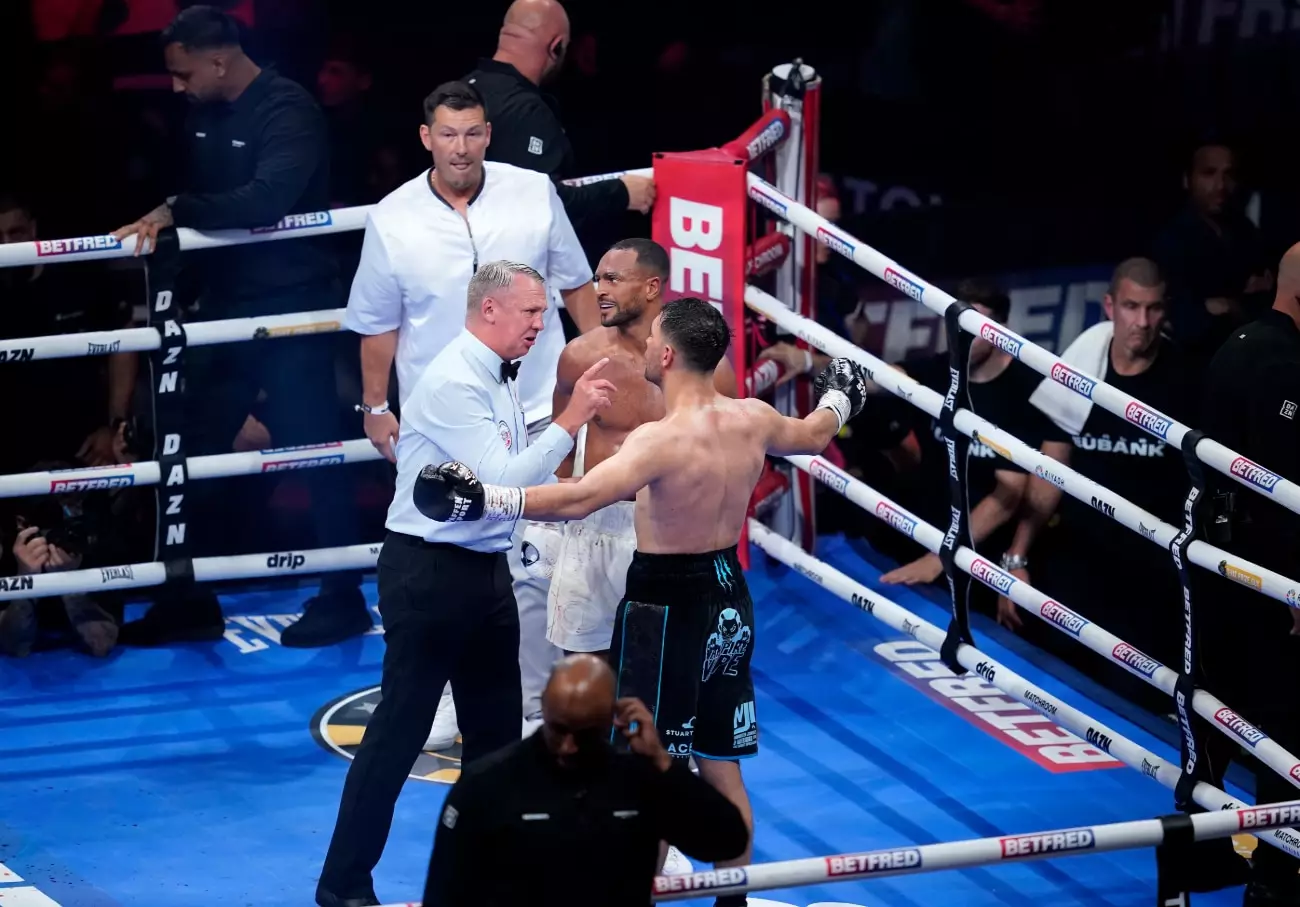In the world of boxing, few moments are as frustrating and unpredictable as the clash of personalities and circumstances that unfold in the ring. The recent bout between Jack Catterall and Harlem Eubank epitomized this unpredictability. What might have been a straightforward contest instead devolved into a messy, chaotic affair marked by clashes of heads, accidental falls, and a visibly arduous ending. Instead of the expected action-packed spectacle, spectators witnessed a fight marred by unfortunate circumstances, leaving many with a sense of dissatisfaction. In boxing, such chaotic encounters often dilute the sport’s inherent elegance, but they also challenge fans and analysts to reconsider the true nature of competition.
The fight, which was initially poised to be a showcase of skill and resilience, was prematurely halted due to a severe cut sustained by Catterall. The decision to stop the bout, though possibly unavoidable, sparked debate. Some viewed it as a necessary safety measure, reflecting the sport’s evolving emphasis on fighter health. Others criticized the decision, claiming it robbed fans of a genuine contest, a chance to see which fighter truly had the mettle to prevail. Despite the controversy, Catterall was awarded a technical decision victory. Yet, that victory feels hollow given the circumstances, raising questions about the integrity and future of high-stakes boxing matches.
Implications for Both Fighters and Their Career Trajectories
While the outcome might seem like a setback for Harlem Eubank, who suffered his first professional loss, it also underlines the unforgiving nature of boxing. For Eubank, the loss is a wake-up call; his potential remains, but now he faces the challenge of bouncing back from defeat and proving his resilience. Conversely, Catterall’s victory—though technically a win—is fraught with questions about the true superiority of either boxer in their current form. The physically messy fight failed to deliver the kind of narrative many hoped for—one of skill, grit, and strategic mastery.
Looking ahead, the post-fight buzz is about what’s next. Promoter Eddie Hearn’s comments reveal a strategic shift: the focus now is on bigger, more prestigious fights at 147 pounds. Catterall’s rise into the top ranks of the IBF and WBA rankings signifies a promising opportunity for him to elevate his career beyond the chaos of last night. The welterweight division is bursting with talent, and Catterall’s next opponent is likely to be a notable name—possibly Ryan Garcia, Rolly Romero, or Devin Haney—each with its own set of challenges and fan expectations. Hearn’s optimism suggests that Catterall is being groomed for a title shot, which might redefine his career trajectory.
However, the fight also exposes vulnerabilities that could be exploited by top contenders. Catterall’s ability to adapt and improve under pressure will be put to the test against the division’s elite. For Eubank, the path forward might involve reassessment, refining technique, and regaining confidence. The draining experience of his first loss could serve as a catalyst for growth or, conversely, lead to further setbacks.
The Broader Reflection on Boxing’s Future and its Ethical Dilemmas
What last night’s fight reveals beyond the immediate results is a larger commentary on boxing’s persistent challenge: balancing spectacle with safety. Fans crave fierce battles and dramatic finishes, but not at the expense of fighters’ health. The referee’s decision to stop the fight was, in many ways, a reflection of the sport’s evolving standards—an acknowledgment that the sport must prioritize safety, even if it means cutting short a potentially thrilling contest.
This incident also prompts us to question the role of authority in boxing—the referee, the ringside doctor, the promoter—and how their decisions shape careers and legacies. Sometimes, stopping a fight is lauded for heroism; other times, it’s criticized as a missed opportunity. The tension lies in making quick, often life-altering decisions in the heat of the moment, which demonstrates that boxing remains an unpredictable and ethically complex sport.
In the end, last night’s chaotic fight underscores a fundamental truth: boxing is as much about resilience and adaptability as it is about power and technique. The sport’s ongoing evolution will depend on how fighters, officials, and fans interpret these moments of chaos—not just as setbacks but as opportunities for growth and redefining what it means to compete at the highest level.

